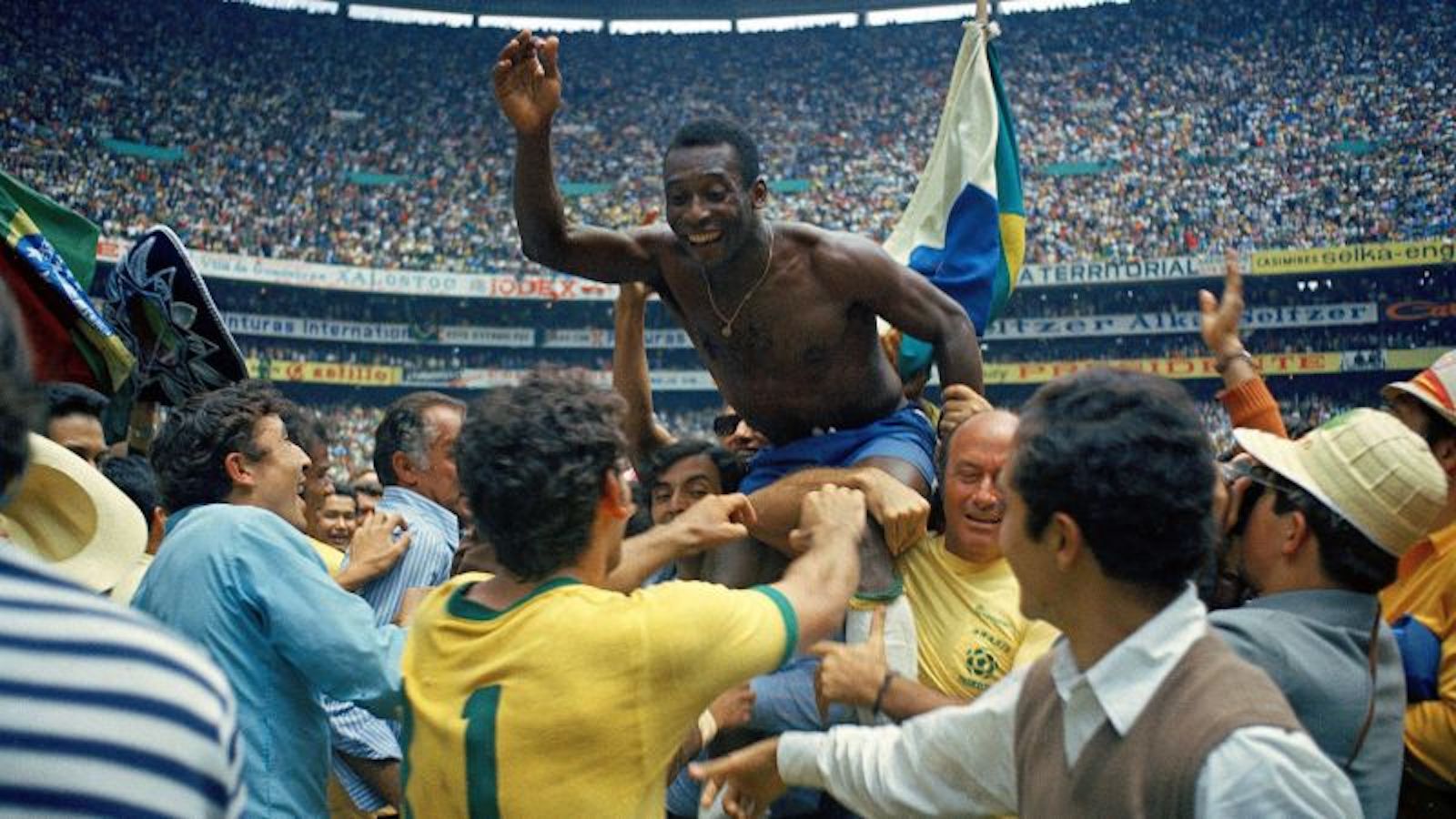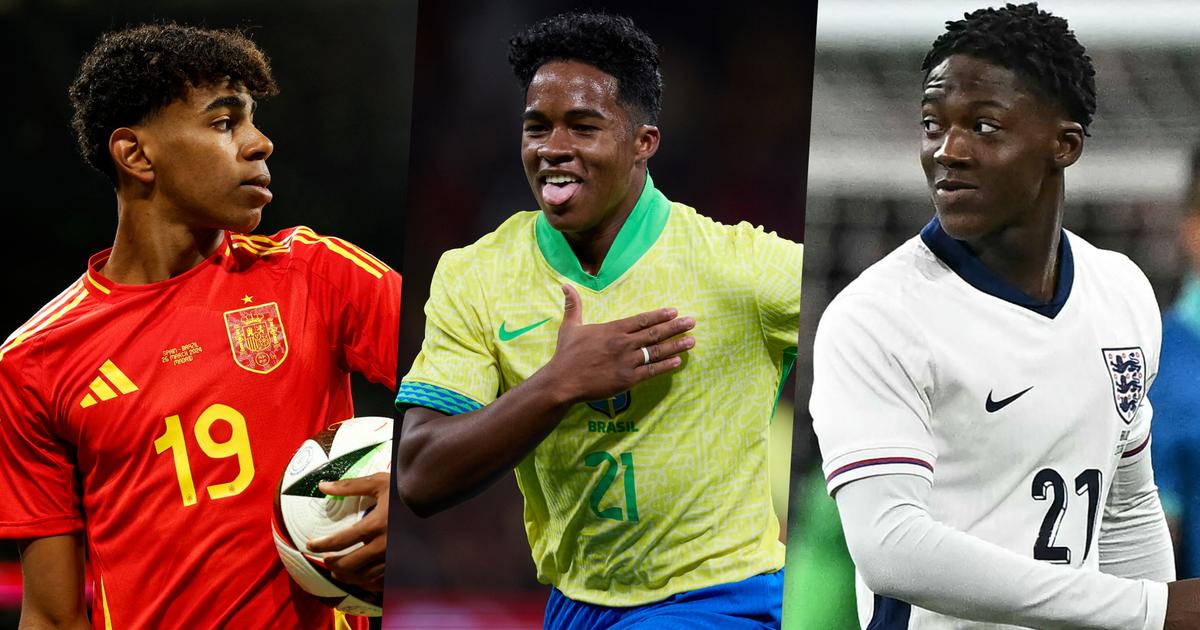Pele dies the "king" of football.
This was his trajectory 5:43
(CNN) --
A Brazilian born into poverty who used to kick around grapefruit in the Brazilian state of Minas Gerais, Pele ended his career as arguably the greatest soccer player of all time.
It was that rarity.
Like Muhammad Ali, Pelé was a sports star, who transcended in him.
The Brazilian brought joy and creativity to a sport often stuck in rigidity and personified the 'jogo bonito'.
“Pele changed everything,” wrote current Brazil international Neymar Jr. after Pelé's death was announced.
“He turned football into art, into entertainment.
He gave a voice to the poor, to blacks and especially.
He gave visibility to Brazil ”, he added.
advertising
Pelé dies at the age of 82: the king of football has left
Pelé lifted his third world cup at the Azteca Stadium 1:18
The Brazilian went from dazzling as a 17-year-old, in 1958, to blasting his way to his first World Cup victory to claiming the Ballon d'Or as a 1970 World Cup player and even winning a third world title.
“O Rei” achieved almost everything possible in the famous yellow and blue of Brazil.
And there were goals, many of them.
Pelé scored 757 goals in 812 official club and country matches.
However, there is disagreement over how many goals he has scored in his career.
According to Reuters, the Brazilian football association and Santos say Pelé scored 1,283 goals in 1,367 matches, though FIFA puts the figure at 1,281 goals in 1,366 matches.
But it wasn't just the phenomenal number of goals he scored.
As Neymar suggests, Pelé was also an artist on the pitch.
"So I wouldn't have used a brush or a pen, but just had a ball at my feet," said CNN Sport's Don Riddell.
"Before Pelé, '10' was just a number," Brazil international Neymar Jr. wrote in an Instagram post. "He is gone, but his magic will remain." (Credit: Domicio Pinheiro / State Agency / AP)
Pelé, from football to legend
The world first saw Pelé at the 1958 World Cup.
“When we arrived in Sweden, nobody knew what Brazil was.
They know about Argentina... Uruguay.
It was a surprise for us," Pelé told CNN in 2016.
At 17 years and seven months, Pelé became the youngest person to play in a World Cup, a record the Brazilian held until Northern Ireland's Norman Whiteside took that record in 1982.
Almost 15 years after leaving the world excited at the 1958 World Cup, Pelé hung up the Seleção's cleats, bequeathing his nation as the most successful team in World Cup history and the most feared team in international soccer.
Pele's crowning moment for Brazil came at the 1970 World Cup in Mexico, a tournament further idealized as the first World Cup to be broadcast in color.
Throughout that tournament, Pele blazed a trail of Technicolor splendor, a blur of yellow and gold, seducing and bewitching opposition teams.
His four goals earned him the player of the tournament award, capped off by an assist on Carlos Alberto's impressive goal in the final against Italy.
"We won the World Cup, and I think in my life in sport (that was the pinnacle), without a doubt," Pele told CNN.
Italian defender Tarcisio Burgnich aptly summed up Pele's superhuman genius: “I told myself before the game, he's made of skin and bones like everyone else.
But he was wrong."
How many goals has Pelé scored in his career?
How many children and marriages did he have?
This was his life in data
Pelé in action against Italy in the 1970 World Cup final. (Credit: Jerry Cooke/Sports Illustrated/Getty Images)
Even the moments when Pelé didn't score helped cement his legendary status, most notably England goalkeeper Gordon Banks' incredible block of the Brazilian's powerful header in a group stage match, widely considered the greatest save of all. the times.
“It was one of the best saves I've ever seen, in real life and in all the thousands of games I've seen since,” Pelé wrote in a 2019 Facebook post paying tribute to Banks following the goalkeeper's death.
“When you're a footballer, you know right away how well you've hit the ball.
I hit that header exactly as I expected.
Exactly where I wanted it to go.
And he was ready to celebrate.
"But then this man, Banks, appeared before my eyes, like some kind of blue ghost," Pelé said.
Despite spending all but three years of his club career with Brazilian side Santos, Pelé's dynamism, majesty on the ball and lethality in front of goal ensured that he became one of football's first black stars. world.
How many titles did Pelé win and in which teams?
How many World Cups and Ballon d'Ors did he achieve?
Pelé hugs his teammate Vava after scoring the goal that made it 2-1 in the 1958 World Cup final. (Credit: IBL/Shutterstock)
Pelé admitted to CNN in 2015 that he was very interested in Europe to cross the Atlantic, but chose not to do so out of loyalty and "love" for Santos;
yet another reason why he is so loved in his native country.
"Before it was a profession full of love, now it's just a profession," Pelé said.
“There is not that love of playing for my club, playing for my country.
Clearly, a footballer needs to live from the game.
It's different from my time."
Dealing with the pressure
Such was his impact as a footballer that Pelé also became the symbol of a new country, according to a recent Netflix documentary.
"To address that, I think he creates this character of Pelé, someone who almost gave up his own identity to essentially become Brazil," Ben Nicholas, co-director of the documentary on the Brazilian's life, told CNN.
In addition to shouldering the burden of a country's aspirations on the world stage, the rise of the Brazilian army in 1964 which showed interest in soccer as a tactical and political strategy—in particular, targeting the 1970 World Cup as a " government issue"—presented a problem for the apolitical Pele, according to the Netflix documentary.
“There's a very revealing line at the end of the film,” said the documentary's other director, David Tryhorn, “where you hope Pelé will give us maybe a 'Peleismo,' where he would talk about joy and happiness, but it actually talks about 'relief'”.
Pelé's 5 best World Cup goals, according to FIFA
The debate of who is the best soccer player of all time will continue until the end of time: Is it Pelé?
Diego Maradona?
Lionel Messi or Cristiano Ronaldo?
But, Brazil's sheer love and adoration for Pelé cannot be matched and extends beyond a fine footballer, but rather a totem for a nation.
Pele








/cloudfront-eu-central-1.images.arcpublishing.com/prisa/ISYRMHH3KJDCZN6BIVANE3EORM.jpg)
